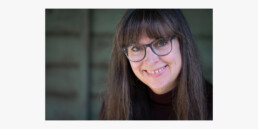Shards
A guest blog by Aini Butt.
You seek validation from the mirror,
a forced smile to please its reflection.
Your tears blurring your vision,
a forceful flood thirsting for its affection.
You work tirelessly, pushing all your doubts and fears aside, towards that romanticised image – the perfect depiction of success and happiness. When you pause to reflect, whether that is by choice or a grinding halt forced upon you, holding your breath before you open your eyes and gaze upon your reflection in the mirror. It's not what you had expected...
You see yourself as a failure when your mirror doesn't show what you had envisaged. You close your eyes. As you open them again, you look at the mirror hoping that the forced smile will somehow make it all better. But you forget, that it is not a mirror's job to entertain your desires; its reflection does not lie – and it will not lie to please you.
These are the struggles that we face when we have developed the ability to reflect, but the years of trauma do not allow us to practise self-compassion and accept our true reflection. Whether it be the result of generational curses, societal standards, toxic relationships, we hold ourselves and our image at ransom against unrealistic expectations.
One of these unattainable standards has been perfectionism, which I'm unlearning through my art. I have been trying different art media for a while now and have had some that turned out a lot better than expected. Despite the harsh criticism from within, they were seen as good enough attempts and deemed worthy of sharing with others.

These are the leftovers of an art piece I was working on. I tried something new and it didn't work out; not being able to face this failure during an already difficult time, I didn't have to think twice and it ended up in the bin.
Sat there at my desk still struggling to write in my journal, it dawned on me that I was still trying to escape those things that hadn't gone to plan. In the process of this desire to discard any evidence of my failures, I was trying to escape the lessons. Maybe because I'm tired of the lessons and the hurt that comes with them – every time!
I took the art out of the bin and tried to rip it up. Yes, it was anger and frustration, but allowing this emotion to flow through my body was the only thing that was within my control, even if for a moment it seemed like I was losing it. When I realised that I couldn't rip the Yupo paper, tears of frustration rolled down my cheeks. I grabbed the scissors and started cutting into the already-ruined art piece. When I had finally cut it into several pieces, I closed my eyes and sunk back into my chair. Looking at the pieces lying in front of me, the desk light shone its light on one of the smaller ones; the metallic gold shimmered, maybe even more so than when it was part of the whole picture.
All I could see was the glistening beauty of that small piece, which was part of my failure. In that moment, I forgot that I had failed to depict the image I'd had in my mind. I knew that going back to the same image was now impossible after cutting it into pieces. Even with the best efforts, I would not be able to recreate alcohol ink design in an identical way. I stuck the pieces into my journal and filled the gaps with gold foil.
Is that what we are meant to do when life breaks us apart and that desired reflection in the mirror is shattered into smithereens?
Sometimes we need to accept that the image we were working towards has been destroyed and it is only when we practise self-love and self-compassion that we will be able to see the glistening beauty of our shards.
My Response to the Plan
A guest blog by Abigail Gray.
The day before the new SEND Improvement plan was published, I was at the Outstanding Schools Conference at County Hall with leaders of international schools. There were delegates there from all over the world: India, Ukraine, Greece, The Netherlands, France, Dubai and, of course, the UK.
My good friend Louise Dawson, a passionate advocate for inclusion and an international SEND consultant, had invited me to her session on putting SEND policy into practice. It involved a hilarious pass the parcel activity, but typical of a great SEND practitioner, there was deep intent in the fun. There were presents but also questions instead of forfeits. School leaders quickly began an animated conversation about the challenge and opportunity of an inclusive school. What are the things we need to change? What needs are hardest to meet in the classroom? How do we fund effective support? What is included in our universal offer? How do we meet and manage expectations? This list went on.
One of the words that Louise used repeatedly in her presentation was ‘intentional’. She made it clear that inclusion doesn’t happen by accident, it happens by design. I think she’s completely spot on.
It’s long been my observation that no new plan, no law, no regulation, guidance or policy enacts itself. Writing it down doesn’t make it so. It takes people to do that.
It takes people to firstly be aware of what it is that they need to do, then work out how it might best be done. It takes action and courage and stamina and commitment. It takes personal and professional integrity. Every head teacher, every local authority officer, every teaching assistant, every teacher, every educational psychologist, every one that makes it happen. All of us.
All this talk of transformational plans, while the transformation yet to take place in education is the one that genuinely places children with SEND at the heart of what we do. At the heart of our inspection frameworks, our performance measures, our planning, our pay spine, our conscience. Not only do we need to be absolutely clear in understanding our obligations but, as Louise rightly says, of our intentions.
It’s always very clear to me when this has happened in a school. When a school gets it right for children with SEND, everybody benefits.
There is a sense of ownership and pride in the relationships that exist with families and children.
There is an understanding of the law and its importance in protecting the rights of the most vulnerable.
There is a willingness to listen to all feedback.
There are opportunities to try and sometimes to fail in pursuit of something better.
There is a shared belief that all children can achieve and thrive at school.
There’s a transparent approach to funding for SEND and to establishing value for money.
There is realism in recognising the limitations of both people and resources.
There is a genuine interest in staff well-being and development.
The graduated approach, we hear so much about for students, is in place for us and our own systems.
There is collaboration.
There is laughter.
There is success.
I know. I’ve been there and it was great.



